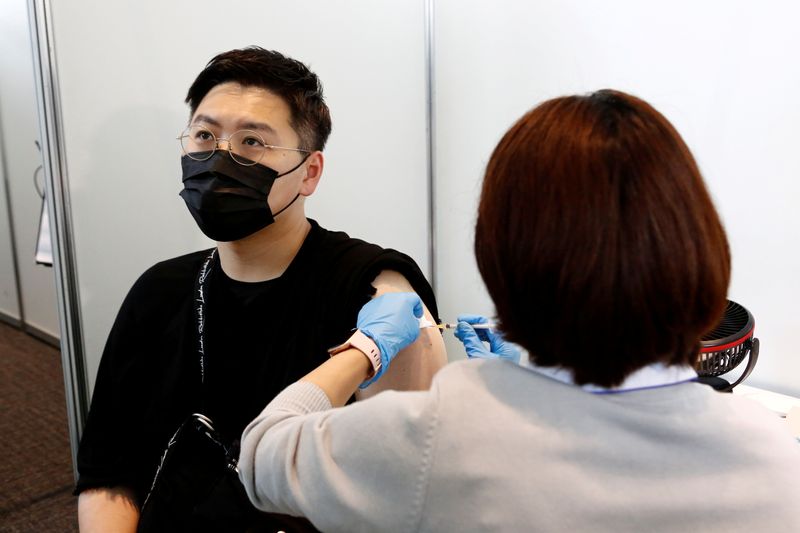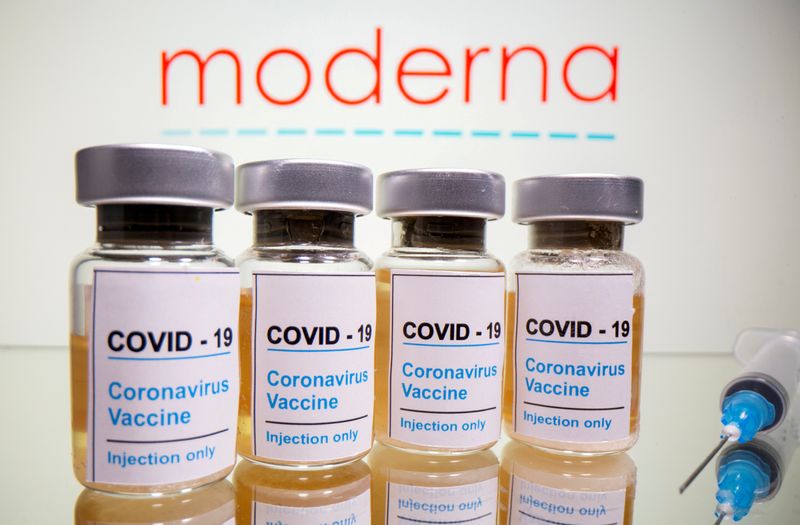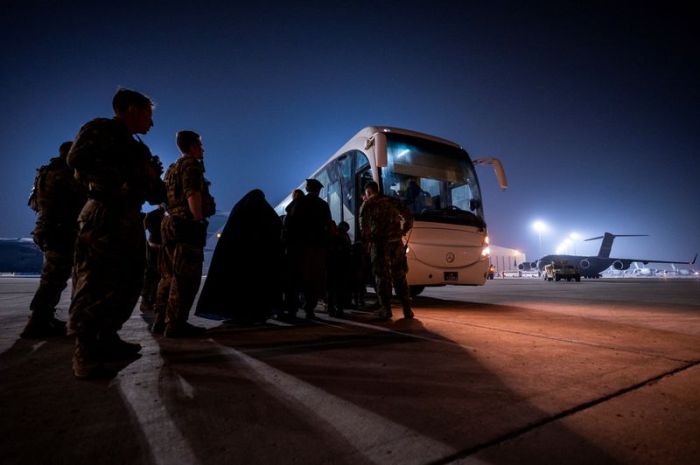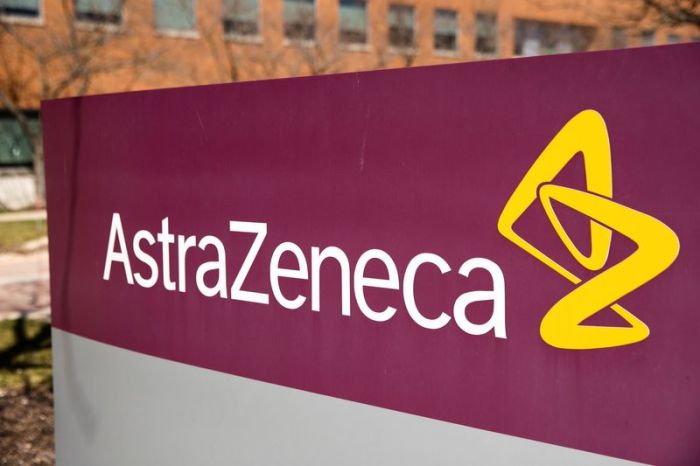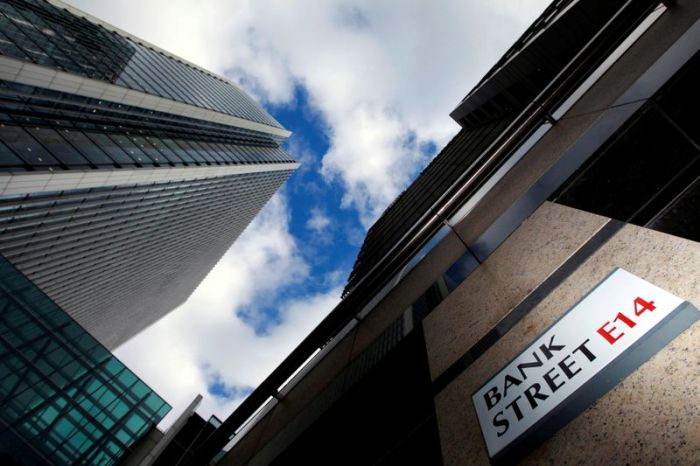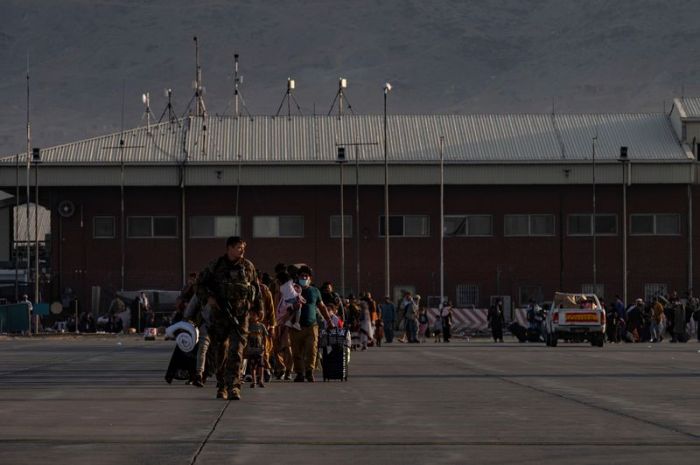TOKYO (Reuters) -Japan suspended the use of 1.63 million doses of Moderna Inc’s COVID-19 vaccine on Thursday, more than a week after the domestic distributor received reports of contaminants in some vials.
Japan and Moderna said no safety or efficacy issues had been identified and the suspension was just a precaution. But the move prompted several Japanese companies to cancel worker vaccinations planned for Thursday and led to the European drugs regulator to launch an investigation into the matter.
“Moderna confirms having been notified of cases of particulate matter being seen in drug product vials of its COVID-19 vaccine,” the U.S. vaccine maker said in a statement, adding it put the lot in question and two adjacent lots on hold.
“The company is investigating the reports and remains committed to working expeditiously with its partner, Takeda, and regulators to address this,” it added, referring to Japan’s Takeda Pharmaceutical, which distributes the vaccine in the country.
A Health Ministry official said Takeda first found out about the contaminated vials on Aug. 16 and reported the issue to the government on Wednesday. The delay was because Takeda needed time to gather information on which vials were affected and where they were in the country, the official said.
Moderna and Spanish pharma company Rovi, which bottles Moderna vaccines for markets other than the United States, said the contamination could be due to a manufacturing issue in one of Rovi’s production lines.
Rovi, whose shares slumped 13.38%, said in a statement it was investigating and “working to provide all the information” about the possible incident. It said the batch in question was meant for distribution only in Japan and two more batches processed before and after it were held back out of caution.
The European Medicines Agency (EMA) said it was investigating the contamination incident and was assessing whether there was an impact on EU supplies.
“EMA is investigating the matter and has requested the marketing authorisation holder to provide information on any potential impact on batches supplied to the EU in addition to details on the ongoing root cause investigation,” the agency said in a statement to Reuters.
Moderna has so far delivered to the EU over 70 million doses of its COVID-19 vaccine, EU’s public data show. The company has two contracts with the 27-nation bloc for a total supply of up to 460 million shots.
SETBACK
The suspension is a fresh setback for Moderna, whose partners had production delays last month that disrupted supplies to countries including South Korea.
Japan’s defence ministry, which operates a mass vaccination site in Osaka, said shots from the lot in question, which contains 565,400 doses, had been used in the western prefecture between Aug. 6 and Aug. 20, but it did not say how many people were affected.
Japanese carrier ANA said about 4,700 shots of the halted Moderna lot had been used and it would stop all vaccinations planned on Thursday.
Its rival Japan Airlines also cancelled some COVID-19 vaccinations for its employees on Thursday after receiving Moderna vaccines with particulate matter.
Despite several companies cancelling planned vaccinations, Prime Minister Yoshihide Suga said the country’s inoculation plan would be little affected by the issue.
A day earlier, he said about 60% of the public would be fully vaccinated by the end of September and the country had enough vaccines to provide booster doses.
The decision to suspend use of the Moderna shots comes at an awkward time for Suga, whose government was criticised over a slow rollout in the vaccine campaign earlier in the year. He faces challenges in a party leadership race and his approval ratings have sunk below 30%.
Japan is battling its worst wave of infections, driven by the Delta variant, with new daily infections exceeding 25,000 this month for the first time. It has inoculated 54% of its population with at least one dose and fully vaccinated 43%, according to a Reuters vaccine tracker.
(Reporting by Manojna Maddipatla and Nikhil Kurian Nainan in Bengaluru, Chang-Ran Kim and Rocky Swift in Tokyo, Nathan Allen in Madrid, Ju-min Park and Sangmi Cha in Seoul, and Ludwig Burger in Frankfurt; Additional reporting by Francesco Guarascio in Brussels; Editing by Ana Nicolaci da Costa, David Holmes and Jonathan Oatis)

